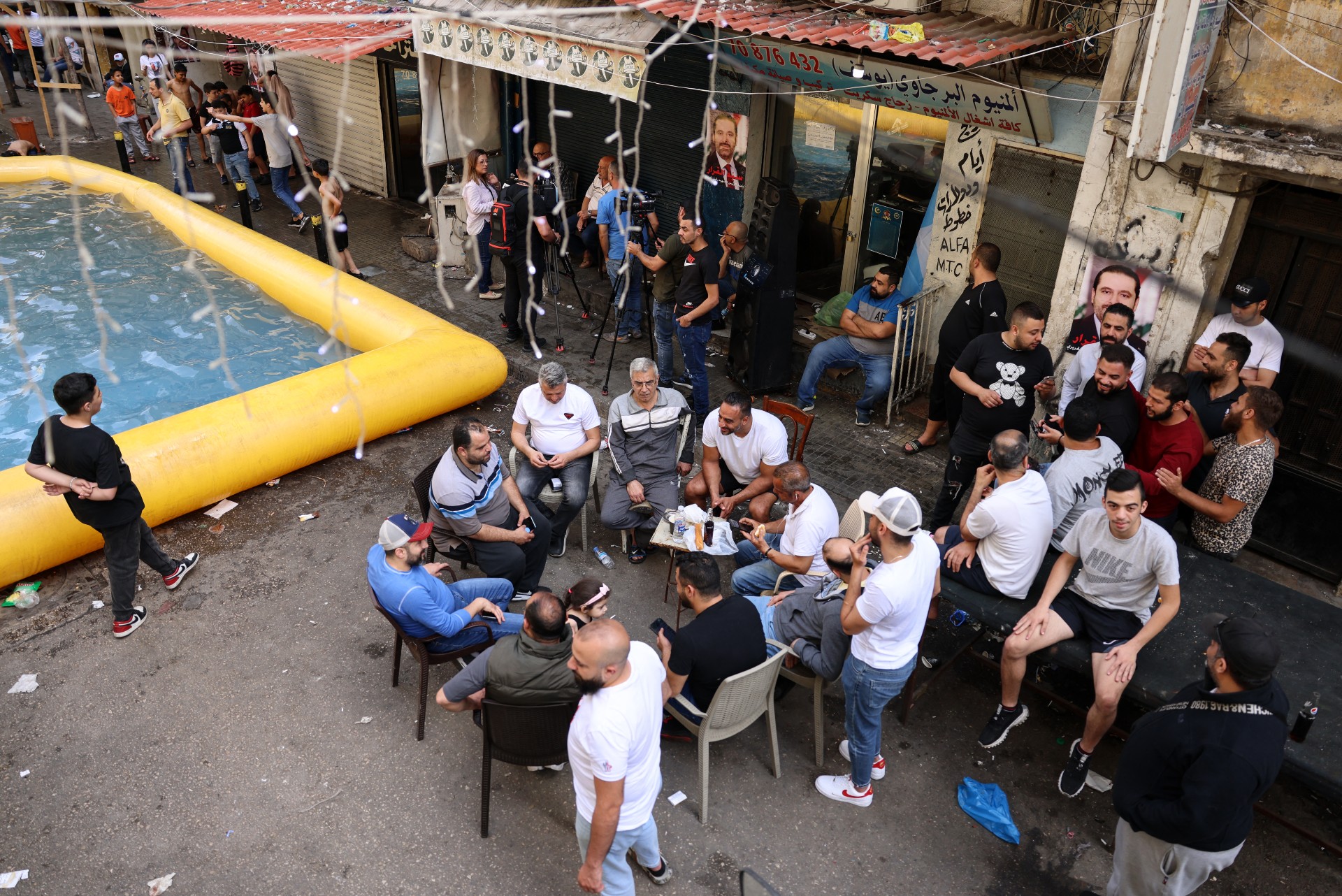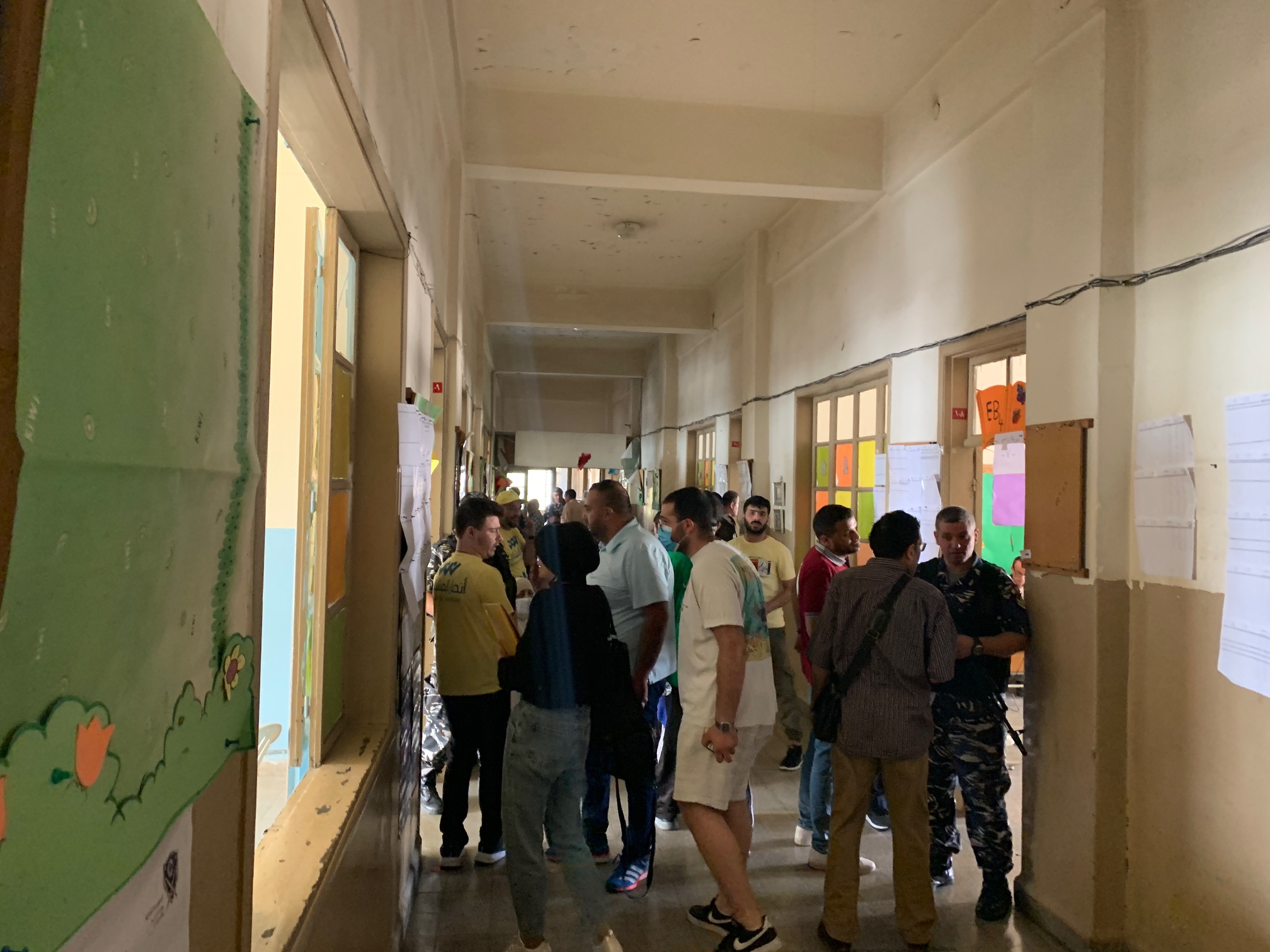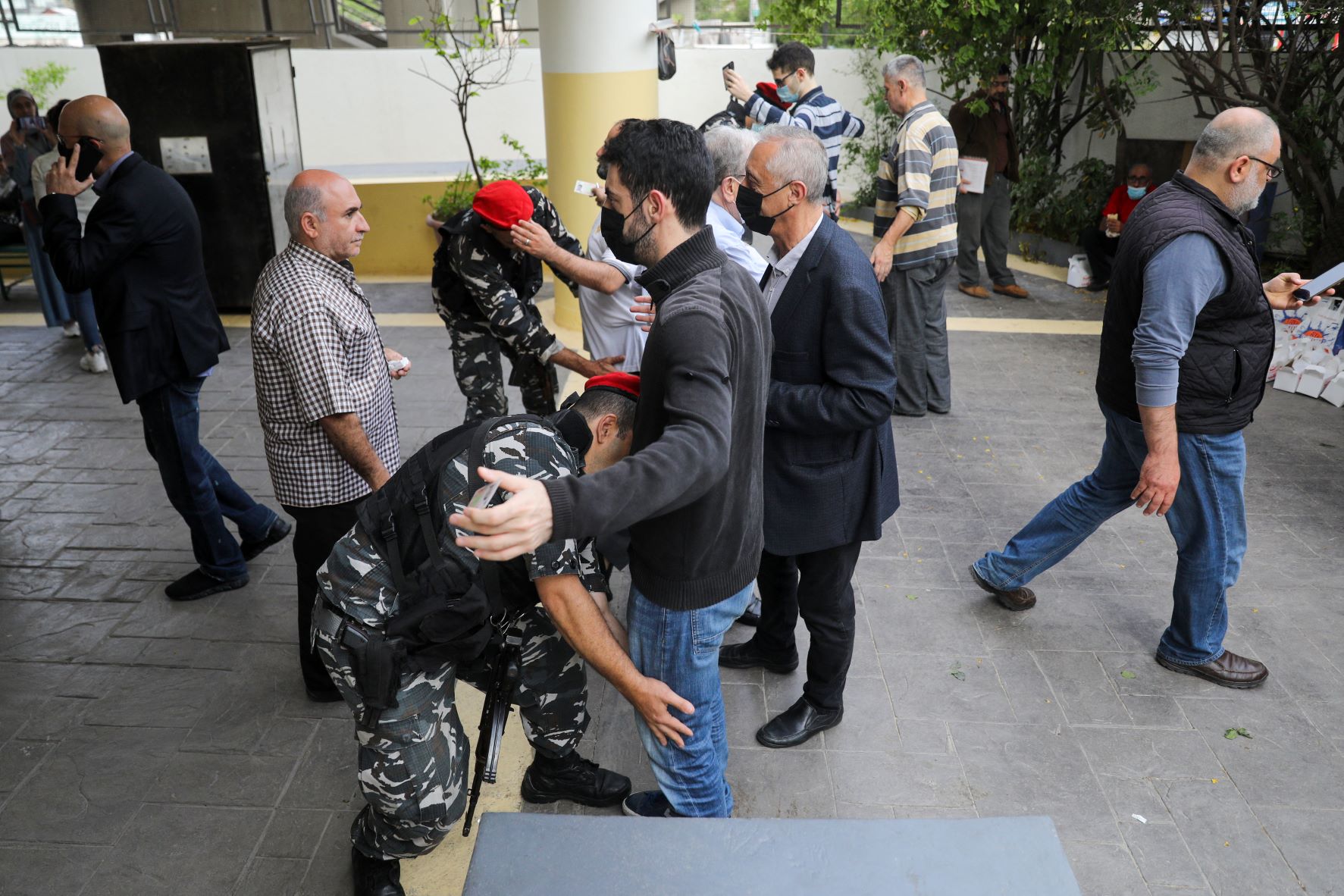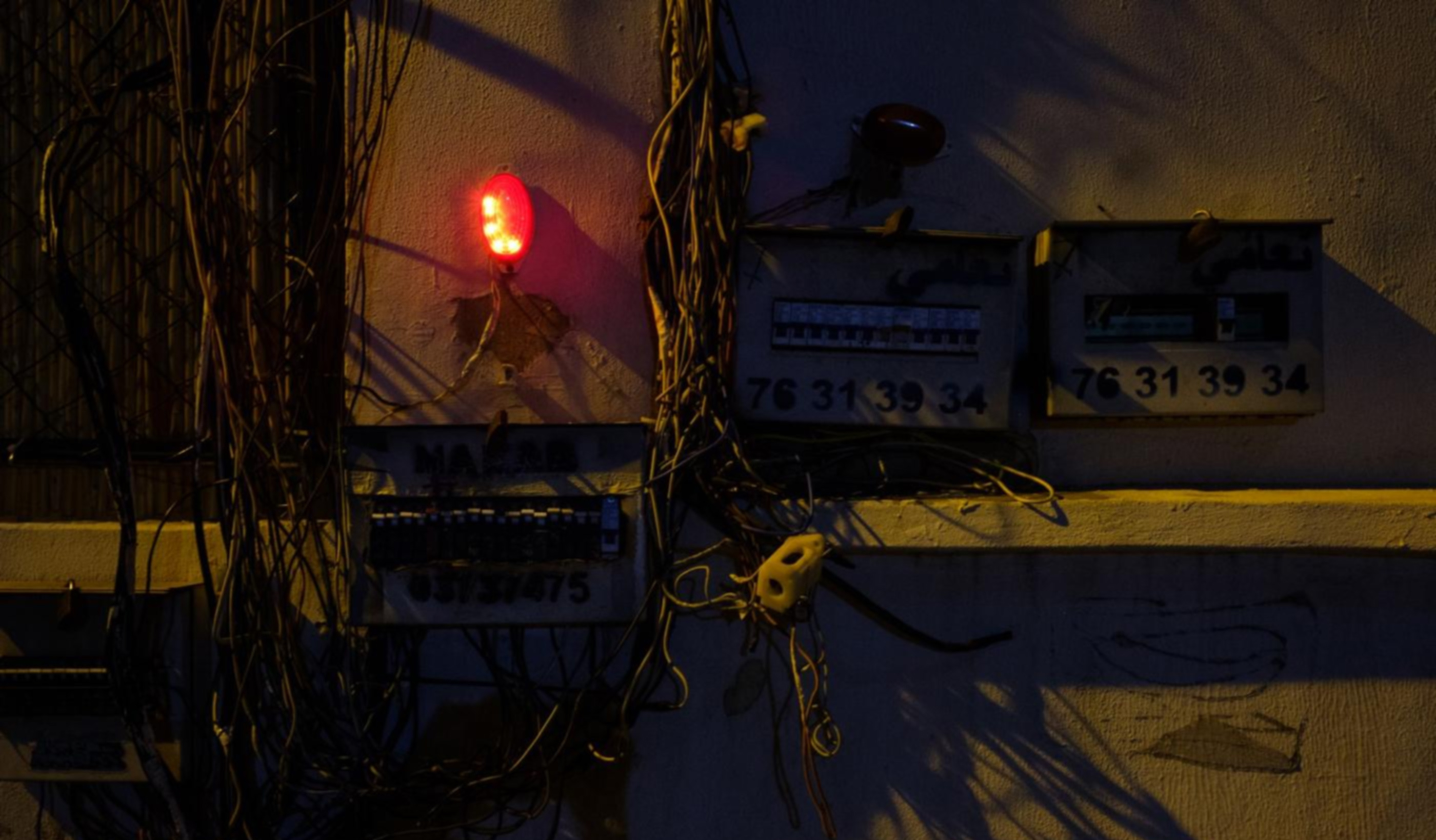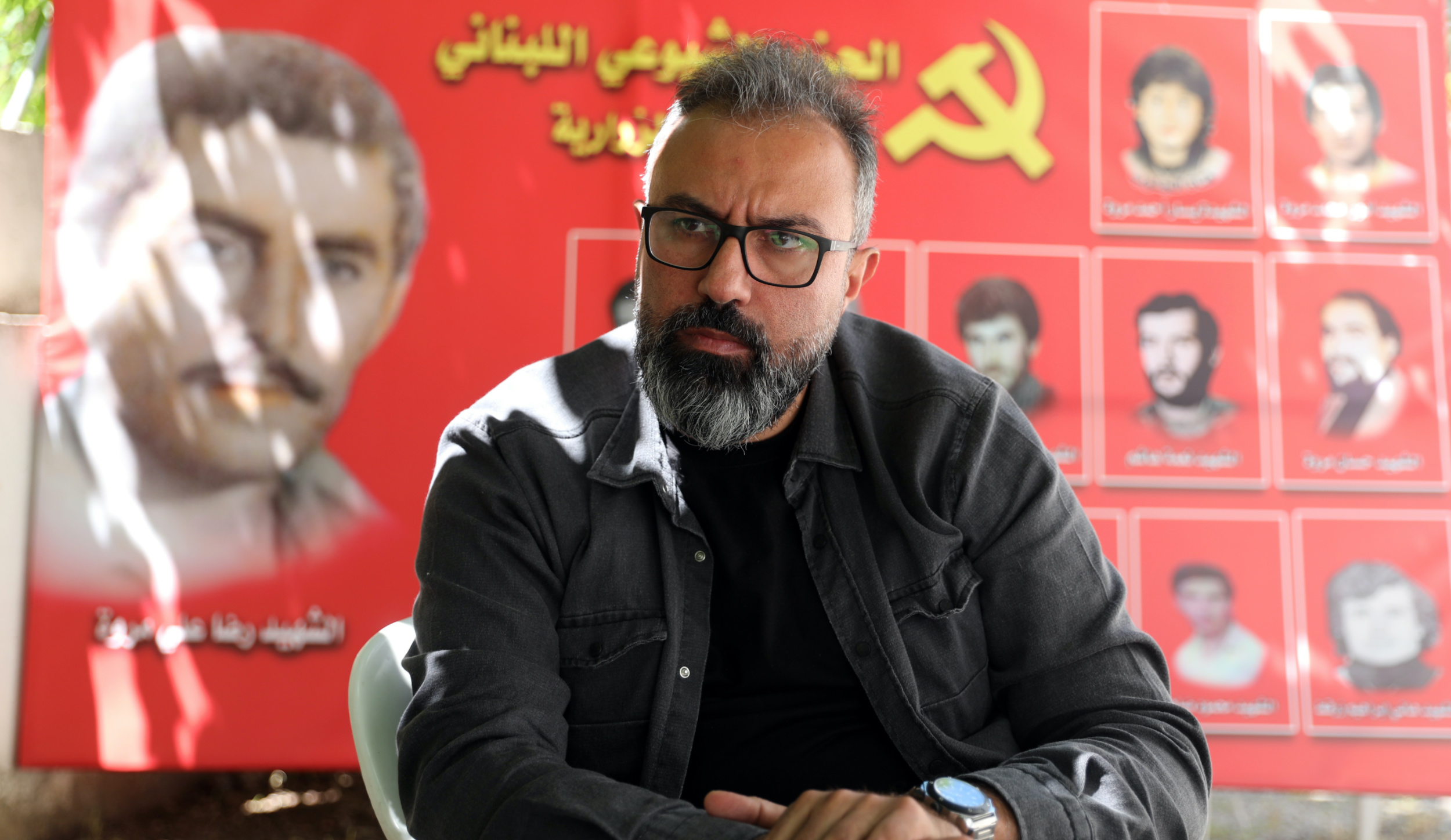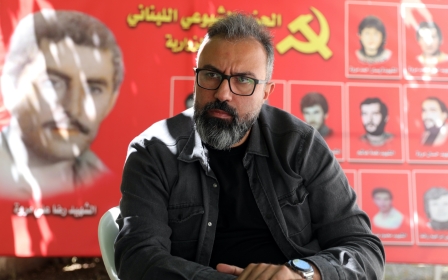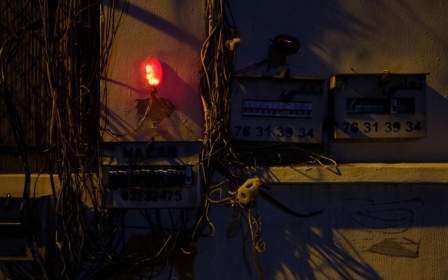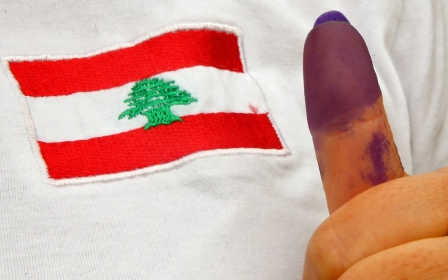Lebanon votes for first time since economic crash
Live Updates
The Lebanese Association for Democratic Elections (Lade) has reported several instances where people's right to vote in privacy and secrecy has been violated.
The independent elections monitor has tweeted several photos of voters being followed into the polling booth by a party member.
It said this was being done despite instructions from the interior minister.
The pool parties in Tarek al-Jdeedeh and Hay al-Berjaoui are rocking. Young residents are hanging out in inflatable pools, blasting music and dancing, a gesture to express they are not participating in the elections in solidarity with ex-PM Saad Hariri.
Unlike other areas in Beirut, most shops in Tarek al-Jdeedeh have been open and operating normally. However, many people said that boycotting the elections is a bad decision and expressed their disappointment in Hariri for stepping down from politics.
One resident told MEE: “Not participating in the elections would only benefit the Shia duo [Hezbollah and the Amal Movement].”
“I haven’t voted yet as I’m still trying to decide who to vote for before the polls close,” Othman Khaled, 56, added.
“I want to vote for someone or a list that is against the current political class. I believe I will most probably vote for Beirut al-Taghyeer list because all [candidates] are new faces. We already know that our current politicians are corrupt and we need to try the new ones. If they are also corrupt, we vote them out in the next elections.”
It looks like low turnout across the board.
AFP's Aya Iskandarani reports that just 25.26 percent of registered voters have cast their vote so far.
But Reuters' Timour Azhari notes that the list of registered voters may not be particularly representive of the number of Lebanese in the country and able to vote. Recent years have seen a huge surge in emigration.
In Beirut, Sally Abu Aljoud spoke to the mukhtar (mayor) of Tarek al-Jdeedeh, Mohammad Tarek Sammak, who said that they saw a very low number of voters in the area when the polls opened this morning, but people started flocking in bigger numbers around noon.
“We are expecting voter turnout to be much lower this year compared to the number in 2018,” he said.
“We also have to wait until after 4 pm because many people wait to vote then to receive a higher bid of cash for their vote.” Bribery to vote is a common feature of Lebanese elections.
Sunni leader Saad Hariri and his future movement are not running in these elections, and many of his supporters are boycotting the polls. In Tarek al-Jdeedeh, his supporters have set up swimming pools in the streets.
“We haven’t seen anyone pressuring others not to vote or to boycott,” Sammak said.
“Hariri did not directly call to boycott the elections, but some people want to abstain from voting in support of Hariri’s decision to step down from politics.”
The mukhtar added that he is expecting to see many blank ballots, also in solidarity with Hariri.
“Many people have been approaching me - they come to my office - to ask me ‘who should I vote for’,” he said. “They are expressing sentiments that not a single electoral list or candidate represents them.”
Despite that, Sammak said that he has been encouraging people to vote, telling them to explore the lists and make a decision on their own.
"My daughter dragged me from Saida to come and vote for you," a woman coming out of the polling centre in Bint Jbeil told independent candidate Hassan Bazzi, a lawyer running with the Together Towards Change list in South III constituency.
Bazzi said he was feeling optimistic, despite describing elections in the south as "a very significant and difficult battle".
"We are hopeful that we will be able to secure at least one seat [of 11]," Bazzi said.
Many southerners have expressed disenchantment with traditional parties in the south, with some saying they will either boycott or cast blank votes.
When asked about voting for independents, many said they remain wary of candidates they are not familiar with and what they stand for.
"We come from national homes who have fought against the Israeli occupation, but our focus right now is on Lebanon's internal issues, and people's pain," said Bazzi.
"We are comparing their accomplishments and what we have accomplished as individuals. They renewed the mandate of the central bank governor Riad Salemeh, while we pursued him. They are running with bankers, while we have been fighting the banks."
Lebanon has been going through a crippling financial crisis for over two years, with the country's financial collapse heavily blamed on a corrupt political elite which has ruled Lebanon since the end of the civil war in 1990.
"The same parties have been in control for over 30 years and they have accomplished nothing," said Ali, 36, who cast his vote for Together for Change list.
"I want to vote for someone new, even if they might be lying, or not, but at least I won't be voting for someone who has been giving us the same lies for 30 years."
A student from the American University of Beirut who is voting in Tripoli told MEE that the north of the country needs to vote.
"I voted for independent candidates. I think we could gain 20 to 30 seats. The outcome of this election will motivate people to vote in the next election to get a bigger change," he said.
The student, who refused to give his name, told MEE that traditional parties have been provided "last-minute services" to their voters.
"Traditional parties here in Tripoli helped their voters in economic needs with surgery services or giving them money for basic needs to get their vote in exchange in the last three weeks. This is disgusting," he said.
MEE couldn't verify this statement independently.
The voting process is going smoothly at the polling stations that MEE visited in Tripoli. Most of the people interviewed said they voted for independent candidates, citing the major problems that the city has been suffering from the beginning of the economic crisis.
Amer Bakkur, 27, used to work at Tripoli municipality in the waste management department, but he found himself unemployed due to the economic crisis.
"We have no work here in Tripoli. I voted for an independent candidate because I hope we can change the current situation," he said.
Another voter, Nidal, 43, told MEE he wanted to wait for results to see how the elections are going. He went to vote with his family and his sister's family.
"I voted for an independent list because independent candidates suffered like us during these years. We don't have basic services, and we have been suffering from lack of the electricity for so many years," he said.
Anger has particularly bubbled up in the northern city, Lebanon's second-largest, after a boat of Lebanese attempting to cross the Mediterranean capsized, killing more than 30 people.
The Lebanese Association for Democratic Elections (Lade), an independent organisation that monitors the polls, is reporting issues.
Lade tweeted that it withdrew some observers in southern Lebanon’s Ramadeyeh and Mazraat al-Toot after receiving threats from Hezbollah and Amal Movement representatives.
It also reported that other observers in other areas were being subjected to pressure and threats, tweeting a video of Hezbollah and Amal supporters swarming a polling station.
There are also reports of a lack of pens and ballot papers in many polling stations, and media being refused entry despite official permission.
Lade has demanded the interior ministry look into these issues and protect the observers.
Sally Abou AlJoud has been talking to voters in the Lebanese capital Beirut, where anger and apathy have been driving forces in voters' political choices.
"The best thing that's happening today is that every voter is convinced with who he is voting for," she said, referring to the fact that the polling station she's voting at is close to a Shia stronghold in Bashura, Beirut II.
She said that she was elated to be voting today for Mohammad Nabil Badr, a candidate on the Hayde Beirut list, backed by independents and the Islamist Jamaa Islamiyyah party.
"I am 61 years old, my life is behind me, but I'm voting to change the country for the next generation."
Sarah al-Shareef, 30, also said she was hoping things could improve in the country.
"I am here with my family voting for change," she said. "I've been following opinions and developments on the news and social media, and it looks like we are going to win.
"The situation is really bad, and our current politicians led us here. It's time they step down, and we are here to do that."
Middle East Eye’s Heba Nasser is in south Lebanon’s Bint Jbeil, a town synonymous with resistance against Israel.
Across the town centre people are seen walking towards the two polling stations under rows of tiny Amal and Hezbollah flags.
Standing at a polling station, Aida, 65, told MEE that voting for Hezbollah is the least she can do “after everything they’ve done for us”.
"I'm voting for the people who have always defended and protected us," she said.
The street outside the polling station is crowded with people waiting to go in, while cars manoeuvre the narrow street it is on with difficulty.
“I voted for Hezbollah because when the state failed us during this crisis, and we ran out of diesel, fuel and foodstuffs, they were there for us. They worked to supply people with the things they needed,” Aya Suleiman, 28, told MEE.
Suleiman said she believes Hezbollah MPs have tried to fight corruption but faced resistance from other parties.
“People say that we are being forced to come out to vote, but that’s not true. I’m here of my own volition to the people who represent me in the parliament,” she said.
In Tripoli, Dario Sabaghi has been talking to voters:
Ayham Ajami, 29, said there will be a change, with people between 21 and 31 voting for independent candidates.
“Old people here in Tripoli will keep voting for traditional parties,” he told MEE.
Two young men, who preferred to remain anonymous, confirmed they had voted for independents.
“We have hope for a better future but don’t expect much change with this election. We voted for independent candidates. However, the situation in Lebanon is very hard,” one said.
One of the men is a physics teacher in an elementary school in Tripoli, and he now earns roughly $50 per month due to the economic crisis.
It has been a slow electoral morning in Rmeich, a Christian town in the district of Bint Jbeil, South III constituency. Hezbollah and Amal flags are notably missing in Rmeich, where the majority of residents support the Lebanese Forces (LF). The party had however withdrawn from the opposition list Together Towards Change due to disagreements over some of its candidates’ support for the resistance against Israel, and has no candidates running in South III
An LF representative told MEE that the party has decided to boycott the elections in the South III because none of the lists represents their ideals.
The party set up a booth in front of the polling centre to “call on people coming to vote to boycott the elections,” according to the representative, who spoke on condition of anonymity because he was not allowed to speak to the press.
Coming out of the relatively empty polling centre, a married couple told MEE that they had driven out from Beirut at 6am.
“I had misgivings about voting, but my kids, who live abroad like everyone else, insisted that I come out to vote, saying ‘vote for anyone but not for the same faces’,” said May Haddad Choufani.
"I was planning to cast a blank vote but when I found out this might help the traditional parties, I voted for the candidates calling for change, but to be honest I don’t have faith.”
Choufani’s husband said he decided to vote because it's a democratic practice and “voting is the only non-violent road towards change”.
Local media reported power cuts in some voting centres across Lebanon, despite assurances from the interior ministry that polling stations would be powered on election day.
Lebanon, grappling with an unprecedented economic crisis since 2019, has suffered from severe power shortages for nearly a year - largely because the government can't afford fuel for power stations.
Power cuts can last up to 23 hours a day in some regions, forcing many to rely on expensive generator subscriptions to keep the lights on.
The international community has long demanded a complete overhaul of Lebanon's loss-making electricity sector - which has cost the government more than $40bn since the end of the 1975-1990 civil war - as one of the basic conditions to disburse billions of dollars in desperately needed financial support.
There are fears power shortages today could lead to massive electoral fraud. Read more here:
Lebanon praying the lights don’t go out on election day
People drove to the south to vote very early on in the morning to avoid heavy traffic (Lebanese have to vote where they are from, regardless of where they live).
Some cars brandished Hezbollah and Amal flags over their windows and roofs. The Shia heavyweight parties are expected to win the South II and South III constituencies by a landslide.
Running against them are independents who are hopeful that, after successive crises that have worn out the Lebanese public, they would be able to penetrate the traditional parties’ hold in the south.
For more information on the battle for south Lebanon, read here:
Hezbollah and Amal court bitter and broke southerners
Hello and welcome to MEE's Lebanese elections live blog.
Already thousands have headed to polling stations, with independents hoping for a breakthrough but the broad political calculus expected to stay the same.
Follow here for updates from correspondents across the country.


